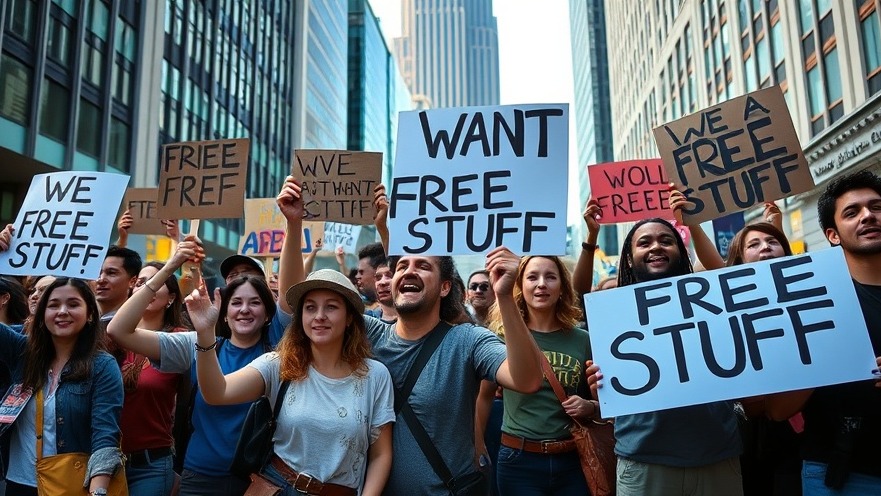
Protests Against Trump: A Symbol of Growing Division
The recent demonstration in New York City against former President Donald Trump is emblematic of a nation divided, as protesters made their voices heard, chanting against hate and intolerance. With phrases like "No KKK, No fascist USA!" echoing through the streets, the protesters were clear about their stance against perceived threats to civil rights and democratic values. Such protests are not only expressions of dissent but also act as catalysts for broader conversations about national unity and the current political climate.
In 'Anti Trump Protestors Hold Demonstration In New York City', the discussion dives into the latest expressions of dissent in the streets of America, exploring key insights that sparked deeper analysis on our end.
Historical Context: The Rise of Political Protests in America
To fully understand the resonance of this protest, it's essential to place it within the broader context of political demonstrations in the United States. Protests have been a fundamental aspect of American democracy, with roots tracing back to the Civil Rights Movement, when citizens rallied against injustice. Today, many rallies echo those past movements as Americans continue to advocate for civil rights amid shifting political landscapes. This rich tradition of protest illustrates the ongoing engagement of citizens in their governance.
The Role of Social Media in Mobilizing Activism
In the modern political landscape, social media platforms play a vital role in shaping public sentiments and mobilizing activists. Hashtags and live streams draw attention to events such as the NYC protest, allowing individuals far and wide to tune in and participate virtually. This democratization of information dissemination brings with it new challenges and opportunities, as misinformation can also spread rapidly. Understanding how social media shapes public protest can offer key insights into the dynamics of modern movements.
Public Reaction and Media Coverage
Public protests often generate a spectrum of reactions, from support to condemnation. Analyzing media coverage reveals how narratives can be shaped. Coverage of the New York protest predominantly highlighted the anti-Trump sentiment, framing it within a broader narrative of resistance to his controversial policies. This framing influences public perception and could sway the opinions of moderates who might otherwise remain indifferent.
Current Events: Trends in Domestic Protests
As we move through 2023, the frequency and intensity of protests across the country are noteworthy. From immigration policies to healthcare reform, the public is increasingly vocal about issues they care about deeply. The New York protest adds to a series of demonstrations occurring nationwide, illustrating a wave of activism driven by discontent with the status quo. Understanding these trends can provide citizens with the context needed to engage more thoughtfully in political discourse.
Looking Ahead: Future Predictions for American Protest Movements
As society continues to evolve, it is reasonable to predict that political protests will likely remain a significant feature of American life. Challenges such as climate change, immigration reform, and economic disparities will fuel the fire of dissent. In this light, future protests may take on new shapes as groups find innovative methods to engage younger generations and utilize technology to enhance their message. The legacy of protests reminds us of the necessity of civic participation in shaping a resilient democracy.
Conclusion: Engagement is Key
The protest against Trump in New York City not only reflects a moment of dissent but also serves as a reminder of the importance of civic engagement. For those of us observing from the sidelines, it is crucial to consider how we can participate in the democratic process within our community. Whether it is through voting, advocating for local issues, or attending town hall meetings, every voice matters. Engage with the issues that resonate with you—the health of our democracy depends on it.
 Add Element
Add Element  Add Row
Add Row 



Write A Comment